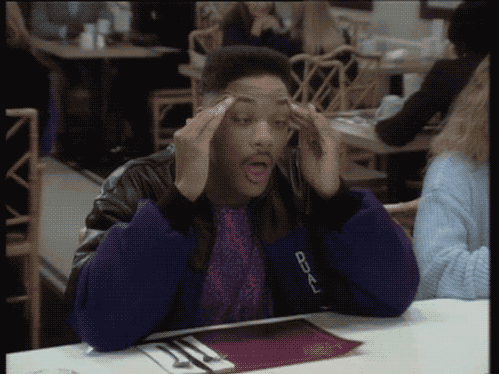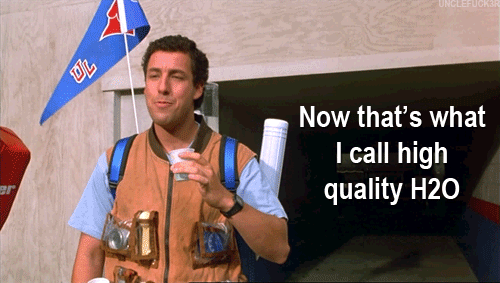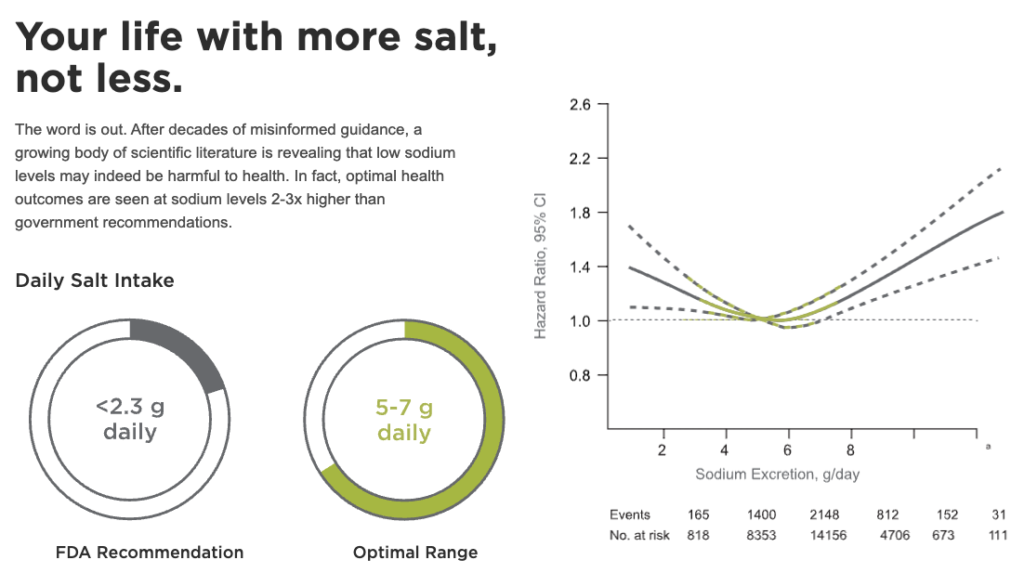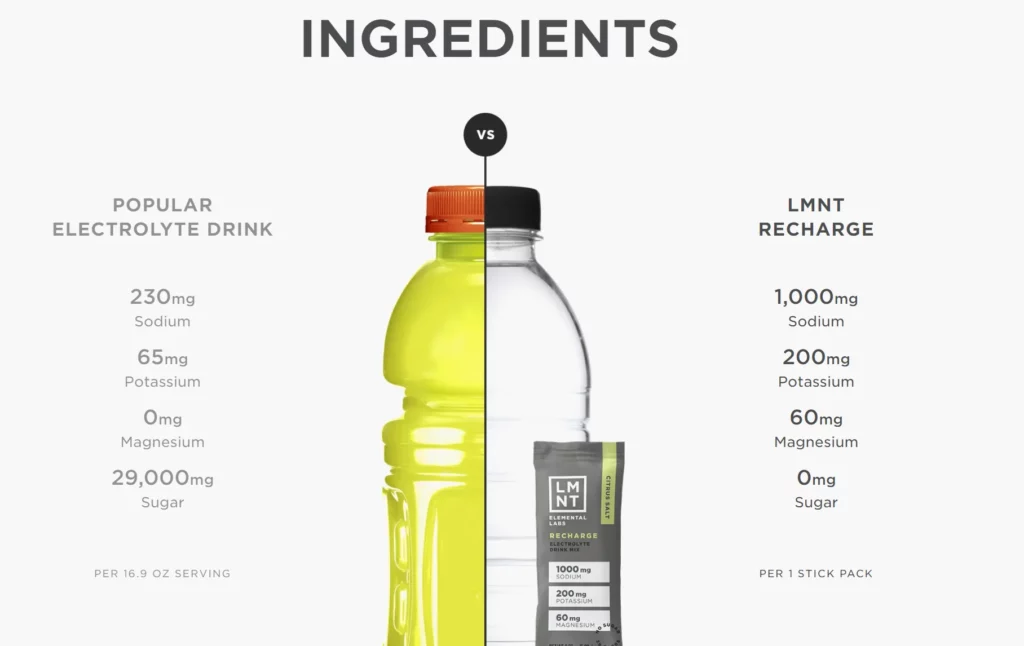
I’m going to tell you a story, about me and my headaches. .. And how I got RID OF THEM.
I started waking up with awful headaches out of nowhere.
Big, head-throbbing ones.
Though medication helped, there was always a low-level amount of pain I dealt with throughout the day any time I woke with one. I couldn’t figure out what was causing them and it was frustrating.
One day I read a book by Aubrey Marcus called “Own Your Day, Own Your Life” and he spoke about how adding a bit of Pink Himalayan salt & lemon to room temperature water salt can help with headaches (amongst other things), and VOILA!
NO morning headaches.
I thought, how could I be missing something so simple?
In my search to perform and feel the best I could, I think I glazed over the idea of hydration and what it actually meant.
I knew we needed “8 glasses of water a day”…but why 8? Did I need 8 and my husband who weighs 100lbs more than me need the same?
Unfortunately, there’s no actual science behind this recommendation. To make matters worse, there’s no mention of electrolytes either. This is a large omission from the hydration conversation.

What Is Hydration?
The dictionary defines hydration as “the quality or state of being hydrated (especially: the condition of having adequate fluid in the body tissues).”
The “adequate fluid” part of the definition stands out because it hints at the REAL goal of hydration: To achieve a level of fluid balance conducive to optimal health and performance.
Tyler Cartwright, the founder of Elemental Labs, geeks out on the intricacies of hydration here in this article. I highly recommend reading it if you’d like to dive deeper into the science of hydration.
For the sake of this article, I’d like to pass on the main points on what’s not only helped me perform better in the gym but relieved major headaches and overall feel so much better.

- Dehydration gets blamed for many problems, but the bigger problem is drinking too much water.
- Overwatering dilutes sodium levels, resulting in headaches, cramps, fatigue, or worse (this is what I was doing. You see bodybuilders with a gallon of water, but rarely is the conversation about electrolytes in it).
- To prevent low sodium, drink to thirst and consume 5 to 7 grams of sodium per day.
- Sugar can help you absorb sodium and fluids, but it’s not essential for hydration.
- To meet your potassium and magnesium needs, eat a plant-rich diet.
- If you’re active in warm climates, exercise at altitude, or eat a low-carb diet, you’ll need a hydration strategy.
So what is the common theme? When it comes to hydration, water alone doesn’t cut it. You need electrolytes too.
How Can You Get More Electrolytes?

We carry little tasty packs of an electrolyte drink mix called LMNT that has the optimal ratio of electrolytes (1000 mg sodium, 200 mg potassium, and 60 mg magnesium) to support our member’s hydration needs (you can get your here if you can’t come to the gym).
You can just dump a stick in your water bottle and you’re good to go. I use one pack in my morning with 16oz water, and then one or two more packs depending on the day’s activities and intensities.
Otherwise, you can add your own as I did with Pink Himalayan salt to your water. I did 1/2-1 tsp of Pink Himalayan salt (or a high-quality salt, not table salt) to a glass of water however you can start with less. That should give you a good amount of mg to see if it helps.
However you get your electrolytes, just make sure that you do.
Your body will be grateful.
By the way… It’s never too late to start. Strength is for everyone. See if our 30-day kickstart program is right for you. Or maybe Online fitness & nutrition program might be the accountability you need.
Do you want to get these delivered straight to your email? Join our newsletter!
